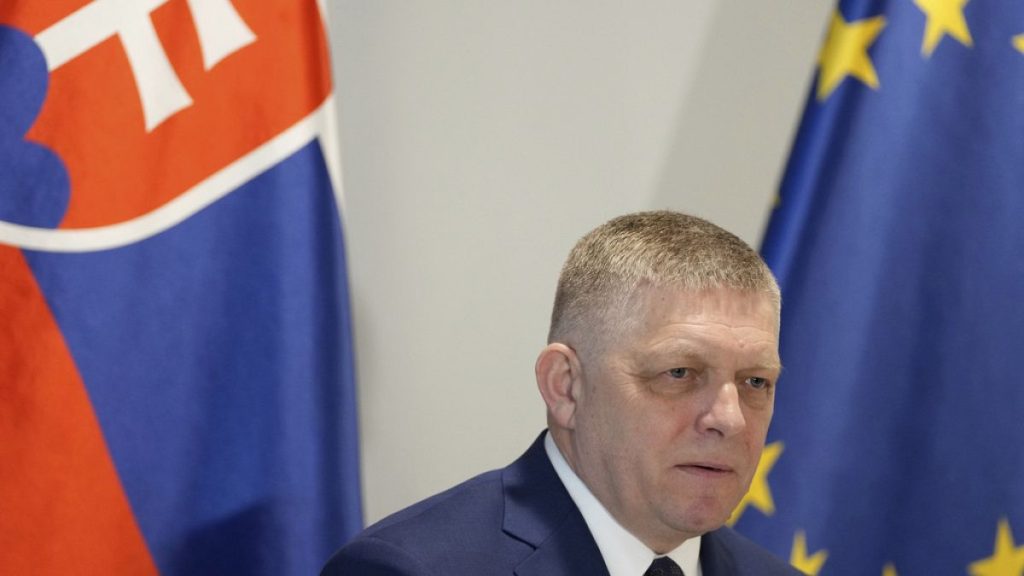The cessation of Russian gas transit through Ukraine has ignited a contentious debate within the European Union, with Slovakian Prime Minister Robert Fico emerging as a vocal critic of Ukraine’s decision. Fico argues that Ukraine’s refusal to renew a gas transit agreement with Russia is jeopardizing Europe’s global competitiveness by driving up gas prices and depriving Slovakia of substantial transit fees. He contends that this action is detrimental to the EU’s economic interests, placing the bloc at a disadvantage against competitors like the US and China. Fico’s stance reflects a broader concern among some EU members about the economic ramifications of the ongoing conflict in Ukraine and the bloc’s energy security strategy.
Fico’s critique of Ukraine extends beyond economic considerations. He accuses Ukrainian President Volodymyr Zelenskyy of acting cruelly towards Slovakia and the EU, suggesting that Kyiv’s decision is a deliberate act of sabotage against Slovakia’s economy. This rhetoric underscores the escalating tensions between the two countries and highlights the complex political dynamics within the EU regarding support for Ukraine. Fico’s combative stance has prompted warnings of potential retaliatory measures against Ukraine, including limiting electricity supplies and aid for Ukrainian refugees. This aggressive posture further complicates the relationship between Slovakia and Ukraine, adding another layer of complexity to the already delicate geopolitical situation.
Despite the European Commission’s assurances that the EU is adequately prepared for the cessation of Russian gas transit through Ukraine and that there is no immediate threat to energy security, Fico remains unconvinced. He points to the continued flow of Russian liquefied natural gas (LNG) into the EU and the increased US LNG exports as evidence of a double standard. He argues that the EU’s failure to sanction Russian gas while simultaneously seeking alternative supplies exposes a hypocrisy in the bloc’s approach to the conflict. This discrepancy, according to Fico, weakens the EU’s position and undermines its credibility in addressing the challenges posed by Russia’s actions.
Following a meeting with EU Energy Commissioner Kadri Simson, Fico expressed his expectation that the EU will take concrete steps to mitigate the economic damage caused by the gas supply situation and bolster the bloc’s competitiveness. He hinted at the possibility of Slovakia exercising its veto power within the EU to obstruct decisions related to the Ukraine conflict, mirroring the tactics employed by Hungary. This indicates a willingness to leverage Slovakia’s position within the EU to advance its national interests and exert pressure on the bloc to address its concerns. The threat of a veto underscores the potential for internal divisions within the EU over the Ukraine crisis and its economic fallout.
While Fico’s public statements have been characterized by harsh criticism of Ukraine and the EU, a joint statement issued with Commissioner Simson following their meeting struck a more conciliatory tone. The statement emphasized a “good and open discussion” on the energy situation and the broader implications of the halted Russian gas transit. It also announced the formation of a High-Level Working Group to assess the situation and explore options for EU assistance. This suggests a willingness to engage in constructive dialogue and seek solutions despite the public disagreements. The establishment of a working group indicates a commitment to addressing the challenges collaboratively, at least at the official level.
Fico’s outspoken criticism of Ukraine and the EU over the gas transit issue appears to be as much directed at a domestic audience as at his international counterparts. His aggressive rhetoric, coupled with his recent visit to Moscow to meet with Russian President Vladimir Putin, has drawn significant criticism from political opponents in Slovakia. This suggests that Fico’s stance on the gas transit issue may be part of a broader political strategy aimed at consolidating domestic support and positioning himself as a strong leader defending Slovakia’s interests. The interplay of domestic political considerations and international relations adds further complexity to the situation, making it difficult to disentangle Fico’s genuine concerns from political maneuvering.

